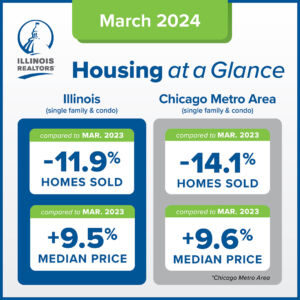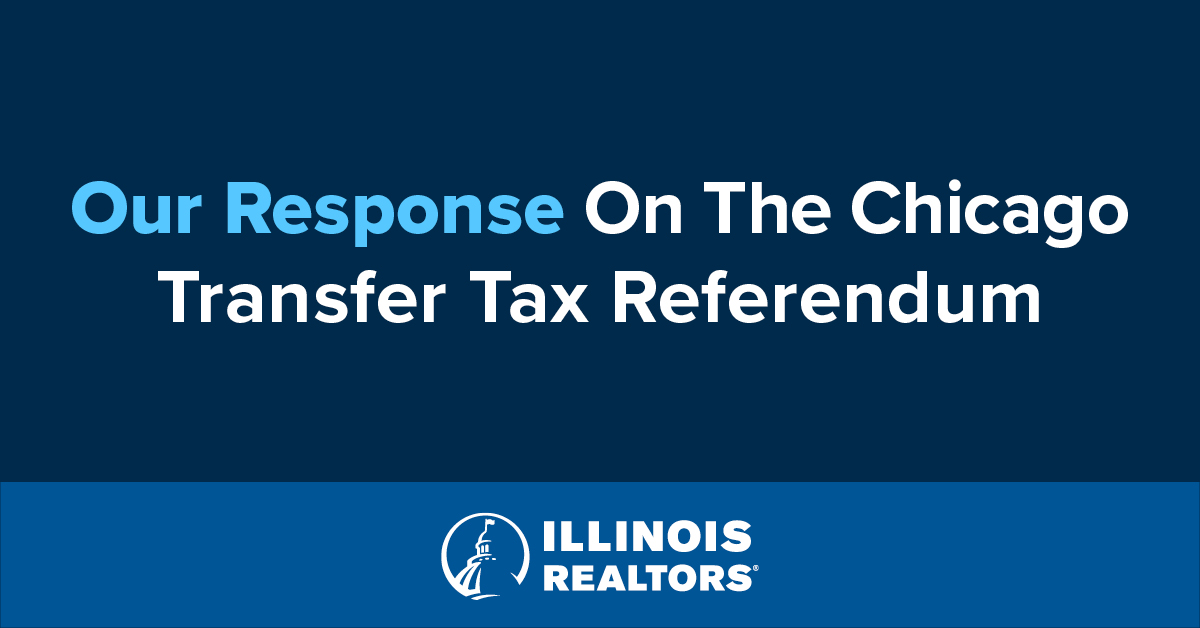Several Illinois municipalities have “point of sale” home inspection programs. Sellers of single-family homes must contact their municipalities when they list their homes for sale or rent. The municipality conducts an inspection to enforce compliance with property maintenance codes. Illinois REALTORS® has worked with municipal officials to make sure these programs do not unduly interfere with transactions and allow due process for property owners.
In December 2019, Illinois REALTORS® and the Mainstreet Organization of REALTORS® initiated a lawsuit against Sauk Village (southern Cook County) after the village imposed a set of procedures that created new burdens for sellers and buyers. The village started to use private home inspectors for these inspections, and REALTORS® and sellers reported their standards were unclear and, at times, seemed capricious. In addition, the village had no contractual agreement with the inspection company, making standards on performance and accountability even more unclear.
The lawsuit was filed after REALTOR® representatives attempted several times to get clarification and to amend existing Code to assure clear procedures, the need for consent and due process (e.g. an owner’s right to appeal a determination made by an inspector). The National Association of REALTORS® (NAR) helped with the lawsuit by providing financial assistance.
Over the past year, several amended complaints in the lawsuit and several sessions of negotiation between municipal officials and REALTOR® representatives, including local Governmental Affairs Director Tom Joseph, an agreement was approved by the village on Jan. 26, 2021. With this agreement, Sauk Village has agreed to specific terms to avoid another amended complaint and to have the lawsuit dismissed. The village agreed to:
- Make inspection checklists public to show the items inspectors will be reviewing/checking for code compliance. This will be used for both for-sale properties and rental units.
- Sign contracts with an inspection company to assure clarity on pre-sale and pre-rental inspection standards.
- Seek consent from owners before properties are inspected.
- Establish a formal process so owners can appeal inspectors’ decisions to the community development director.
After more than a year of lobbying and litigation, the property rights of owners, buyers, sellers and renters were improved through negotiations with village administrators.

Tom Joseph
Cook County Board Approves Tenant-Landlord Ordinance
After months of detailed negotiations, a Residential Tenant Landlord Ordinance (RTLO) was adopted at the Jan. 28 Cook County Board meeting. While most of the law takes effect June 1, a provision that prohibits lockouts started immediately.
REALTORS® opposed the ordinance but were able to obtain many changes to improve it. The ordinance includes:
- exemptions for owner-occupied buildings of six units or less,
- exemptions for single-family homes and single condominium units when owners and family members resided on the property during the previous 12 months (does not include properties owned or managed by companies),
- move-in fees if reasonably related to landlords’ costs for tenants moving in,
- $10 late fees for rents of $1,000 or less (instead of $1,500, as originally introduced),
- 5 percent late fees for rents above $1,000,
- shortened lease renewal notices from 90 days to 60 days,
- eased restrictions on abandoned property storage,
- a “right to cure” provision of two business days for housing providers to correct security deposit administrative errors,
- a “right to cure” provision of two business days if housing providers do not attach a summary of the ordinance,
- requirement that tenants notify landlords of their “right to cure” for security deposit errors or failures to attach a summary of the ordinance,
- 30-day time periods for landlords to return security deposits to tenants (instead of the previous 21 days).
Adriann Murawski, Cook County Governmental Affairs Director, who represented Illinois REALTORS® in all meetings on this issue, says “right to cure” provisions prevent unnecessary lawsuits such as when landlords unintentionally forget to provide ordinance summaries or incorrectly calculate the security deposits.
The RTLO applies to all of Cook County except for the city of Chicago, city of Evanston and village of Mount Prospect which already have tenant protection ordinances.

Adriann Murawski




 Create professional development programs that help REALTORS® strengthen their businesses.
Create professional development programs that help REALTORS® strengthen their businesses.
 Protect private property rights and promote the value of REALTORS®.
Protect private property rights and promote the value of REALTORS®.
 Advance ethics enforcement programs that increase REALTOR® professionalism.
Advance ethics enforcement programs that increase REALTOR® professionalism.
 Protect REALTORS® by providing legal guidance and education.
Protect REALTORS® by providing legal guidance and education. Stay current on industry issues with daily news from Illinois REALTORS®, network with other professionals, attend a seminar, and keep up with industry trends through events throughout the year.
Stay current on industry issues with daily news from Illinois REALTORS®, network with other professionals, attend a seminar, and keep up with industry trends through events throughout the year.







